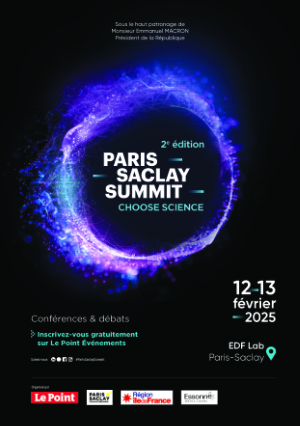Deep Learning for Battery State Prediction in Electric Vehicles: From State of Charge to State of Health
| ABG-127321 | Master internship | 6 months | entre 500 euros et 600 euros |
| 2024-12-02 |
- Computer science
- Ecology, environment
Employer organisation
The Transport and Traffic Engineering Laboratory (LICIT-ECO7) is a Joint Research Unit which is placed under the supervision of University Gustave Eiffel and ENTPE (Post-graduate School of Transport and Civil Engineering).
LICIT-ECO7 is also part of the University de Lyon and Lyon Urban School.
The laboratory is located on both the ENTPE Campus and the University Gustave Eiffel Bron Campus in Lyon.
LICIT-ECO7 is part of the JRT GEST (Joint Research Team on Energy Management and Storage for Transport).
LICIT-ECO7’s main research theme is the Dynamic Modelling, Monitoring and Control of Mobility Networks as well as New Vehicles and New Components Usage, Ageing and Control.
Materials
• Historical battery data and Electric Vehicle usage datasets
• Python programming language and libraries such as PyTorch
• Tools for data preprocessing and visualization, such as Pandas and Matplotlib
Description
In the context of electric vehicles (EVs), accurately forecasting battery states is essential for both optimal vehicle performance and an enhanced user experience. Two key battery states include the State of Charge (SOC), which reflects the amount of energy still available for use, and the State of Health (SOH), which indicates the battery's long-term degradation (Luo et al., 2022).
The SOC represents the battery's current energy level as a percentage of its total capacity, which directly impacts the vehicle's remaining driving range and immediate driving decisions. Conversely, the SOH evaluates the battery's condition relative to its original performance, offering valuable insights into its degradation over time and aiding in planning for maintenance or replacement.
Accurate SOC predictions empower users to calculate the remaining range and strategically plan recharging stops, promoting energy-efficient driving and facilitating short-term decisions. Additionally, when linked to electric vehicle usage patterns, SOC estimations could contribute significantly to adapting traffic management strategies, encouraging energy-efficient driving behaviors, and regulating traffic flow based on vehicles' real-time energy states.
This internship aims to explore advanced deep learning techniques for predicting the State of Charge (SOC) of EV batteries using historical usage and operational data (Mayemba et al., 2024; Tian et al., 2023).
The focus includes:
- Utilizing sequential deep learning algorithms to process time-series data.
- Integrating recent attention mechanism architectures to enhance prediction accuracy and scalability.
After achieving accurate SOC predictions, this methodology could be expanded to estimate the SOH of electric vehicle batteries, utilizing long-term data to identify battery degradation patterns and assess lifespan.
Furthermore, the project offers the possibility of progression through a PhD opportunity, enabling comprehensive research and advanced exploration within this domain.
Profile
The ideal candidate should preferably have:
- Experience with deep learning and familiarity with sequence modeling and
time-series analysis. - Proficiency in Python programming and experience with deep learning
frameworks, such as PyTorch. - Interest in energy management, electric vehicles, and urban traffic systems.
Starting date
Vous avez déjà un compte ?
Nouvel utilisateur ?
Get ABG’s monthly newsletters including news, job offers, grants & fellowships and a selection of relevant events…
Discover our members
 ANRT
ANRT  Généthon
Généthon  TotalEnergies
TotalEnergies  ADEME
ADEME  Institut Sup'biotech de Paris
Institut Sup'biotech de Paris  ONERA - The French Aerospace Lab
ONERA - The French Aerospace Lab  PhDOOC
PhDOOC  SUEZ
SUEZ  CESI
CESI  Groupe AFNOR - Association française de normalisation
Groupe AFNOR - Association française de normalisation  MabDesign
MabDesign  MabDesign
MabDesign  CASDEN
CASDEN  Ifremer
Ifremer  Tecknowmetrix
Tecknowmetrix  Nokia Bell Labs France
Nokia Bell Labs France  Aérocentre, Pôle d'excellence régional
Aérocentre, Pôle d'excellence régional  Institut de Radioprotection et de Sureté Nucléaire - IRSN - Siège
Institut de Radioprotection et de Sureté Nucléaire - IRSN - Siège  Laboratoire National de Métrologie et d'Essais - LNE
Laboratoire National de Métrologie et d'Essais - LNE




